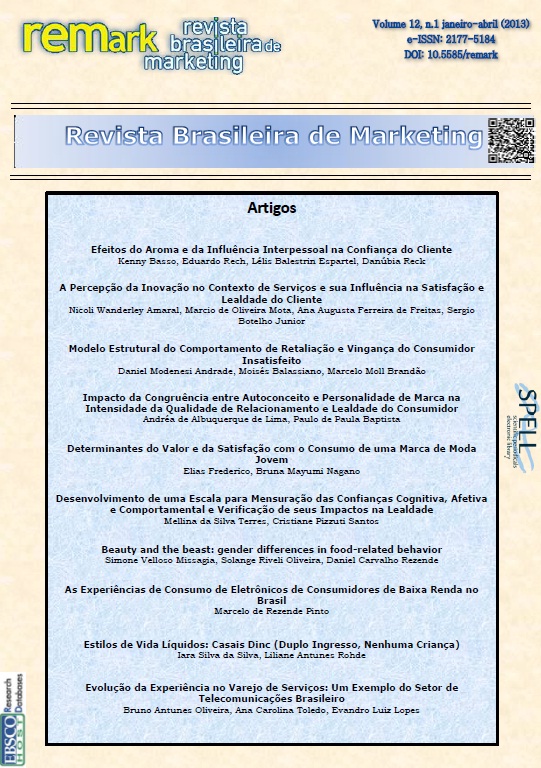Development of a Scale of Measurement of Cognitive, Affective, and Behavioral Trust and their Impacts on Loyalty
DOI:
https://doi.org/10.5585/remark.v12i1.2331Keywords:
affective trust, cognitive trust, behavioral trust, loyalty intentions, services.Abstract
This article aims to develop and validate a scale that measures the components of affective, cognitive, and behavioral trust and verify their impact on intentions of loyalty in the context of the provision of cellular services and banking. The development of the scale was based on Churchill (1979) and followed the following steps: a) Generation of items - through existing scales and in-depth interviews, b) purification - using exploratory factor analysis and c) validation - through confirmatory factor analysis. The sample was 480 undergraduate students. Randomly, one half of the respondents were used in the exploratory stage and the other step in confirmatory. The results showed that affective, cognitive, and behavioral trust are empirically distinct and can be measured. As expected, affective trust and cognitive trust had a positive impact on loyalty intentions, while trust behavior had no significant impact.
DOI: 10.5585/remark.v12i1.2331








